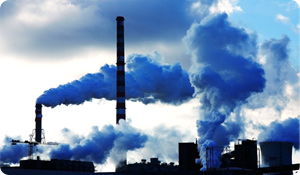
How safe is the air you breathe? If you live in a major U.S. city, the chances are that the answer is, "Not very." A study for the American Lung Association (ALA) finds that six out of ten Americans today live in areas where high rates of pollutants can put them at risk for suffering from related health consequences.
Cities with Poor Air Quality
A growing focus on protecting the environment and making "green" efforts have helped make some improvements in air quality, yet the researchers found that much work still needs to be done in many urban areas.
The study called State of the Air 2010 used data available from 2005 to 2008 to rate cities on the dirtiness of their air. Three different measures were used to compile separate lists focusing on ozone levels, short-term particle pollution, and year-round particle pollution. Five of the cities that topped the lists on all three measures were located in California and include:
- Bakersfield, California
- Los Angeles, California
- Visalia, California
- Hanford, California
- Fresno, California
Concerns about Your Air
Keep in mind that other states also have their share of pollution as well. Therefore, no matter where you live, your health can be in danger. In fact, the ALA report finds that most major cities have very high pollution rates, which can result in a host of illnesses and even contribute to an early death.
While the causes of polluted air are quite varied, some of the common culprits include power plants, diesel engines, and ocean vessels. The effects of these and other pollutants can take their toll on everyone living in a community, but researchers believe that women over 50, truck drivers, people with respiratory ailments, those in lower income brackets, and those who live in heavily trafficked areas seem to be the most at risk.
Take Care
If you're worried about the air you breathe and its cleanliness, taking some simple steps can make a difference. First, get the facts. Find out how your city rates on its air quality annually and stay on top of local changes. Your newspaper and radio station likely report on air quantity on a daily basis. On days when pollution is high, it's important to stay indoors, especially if you have any breathing concerns. Also, shut your windows and turn up your air conditioner when ozone levels are peaking.
You can also do your part to help minimize the pollution. Consider car pooling to work or walking if it's not too far. Use care when cleaning with products that contain chemicals or harmful fumes so you don't release them in the air. Invest in appliances that are rated "energy saving." By becoming aware of the state of the air, you can help to make a difference that'll be good for you now and will also help protect future generations.
Sources:
City Mayors
http://www.citymayors.com/environment/polluted_uscities.html
State of the Air
http://www.stateoftheair.org/





